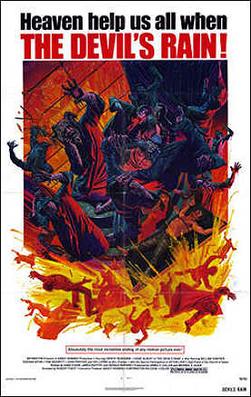Sensor Scan: William Shatner in the 1970s
Modern genre fiction actors are superstars. They’re today’s teen idols, appearing in multi-billion dollar film and television projects and have their name and face instantly splattered across the Internet the moment their franchise sees the merest inkling of popular success. Typecasting too is far less of a problem now then it used to be: Nowadays up-and-coming genre stars go out of their way to nurture a cult of personality as soon as they start to become famous, and take care to ensure each marquee role they play is a slightly different twist on their iconic public persona from the start: Benedict Cumberbatch, for example, plays a version of Khan Noonien Singh in Star Trek Into Darkness that can succinctly be described as “Evil Sherlock” even though he is self-evidently capable of a vast and diverse acting range. Likewise, there’s not a whole lot of difference between Martin Freeman’s Bilbo Baggins, his John Watson and his Arthur Dent, which was already an exaggerated and caricatured version of the character he played in The Office. This isn’t so much a criticism as it is an observation that in contemporary genre fiction, typecasting is something that’s acknowledged and accounted for from the beginning
It wasn’t always like this.
It’s not like the cast of Star Trek were ever really not famous. The series was always afforded a primetime slot in its original run: Even in the third season when it was shunted into the Friday Night Death Slot, at least it was in the primetime part of the Friday Night Death Slot. Star Trek was a marquee show for NBC, and all the accounts I could find dating to the 1960s indicate it was a series that was considerably recognisable and well-known. At the very least, you don’t get to record novelty albums or appear on variety shows if you’re not doing at least somewhat well for yourself (and certainly this also would seem to indicate there’s always been some sort of teen idol appeal within genre fiction). But the flip side of this is that if you became famous for genre fiction in the 20th century…well, there was a good chance that’s all you were ever going to be famous for. And, sadly, perhaps the archetypical example of this phenomenon is what happened to the Star Trek cast, who universally struggled to find work throughout the 1970s, forever becoming associated with the roles they played for three years on the starship Enterprise. No matter how rough the cancellation of the Original Series was for Trekkers, the fact is it was infinitely worse for the cast and crew. And arguably few had it as bad as William Shatner.
Shatner’s bad luck started a few months before the end of Star Trek when his wife Gloria Rand divorced him. While things like this are of course complicated and involve many different factors and variables, Shatner himself has expressed suspicion that this might have had something to do with his character bedding a different woman every week on a popular primetime science fiction show.…









